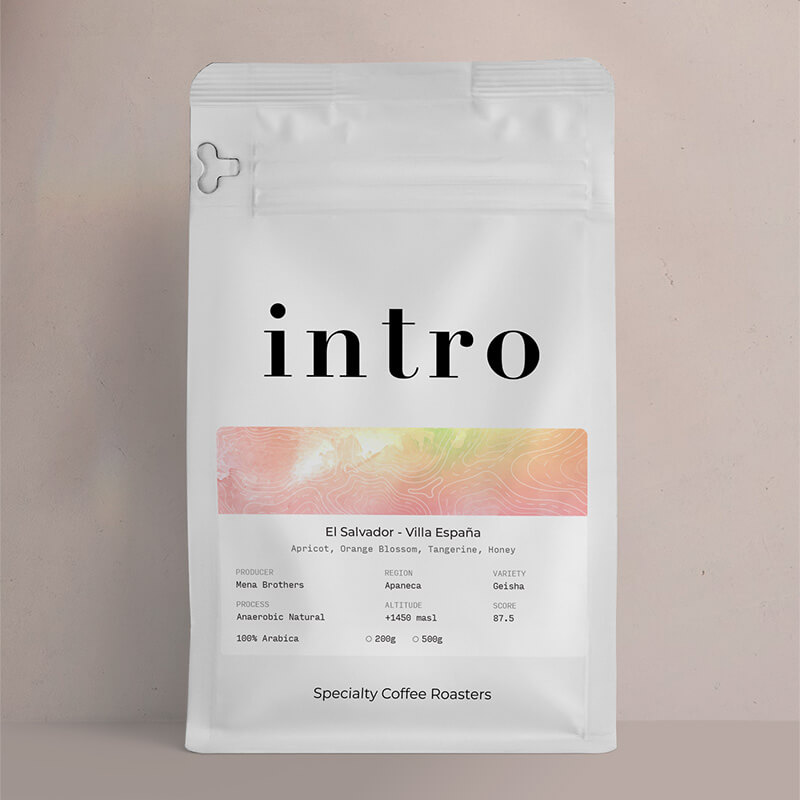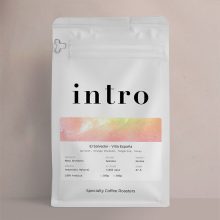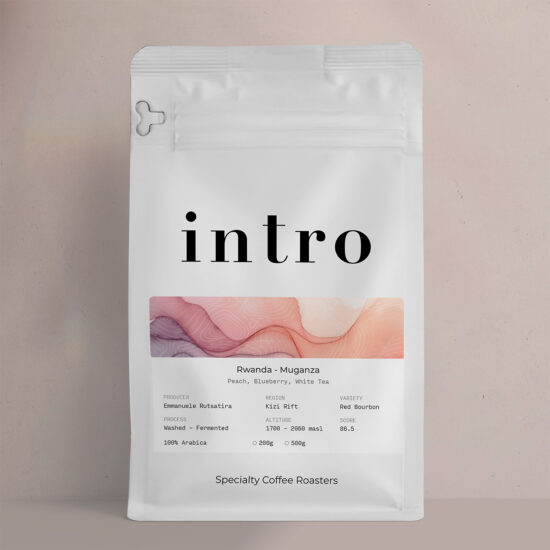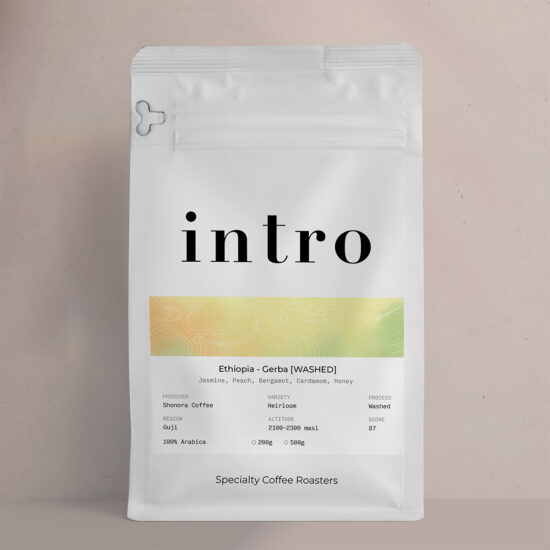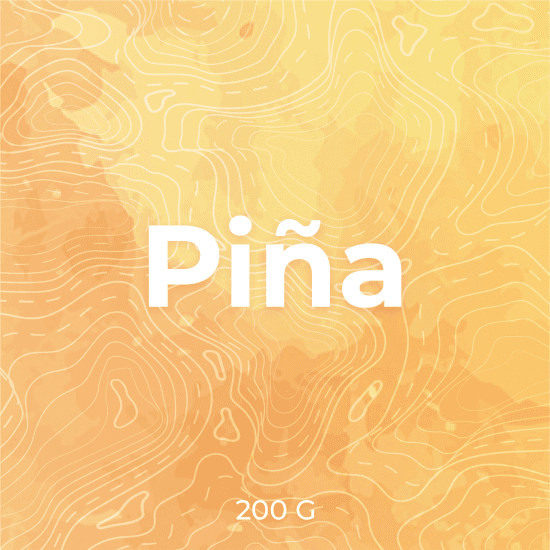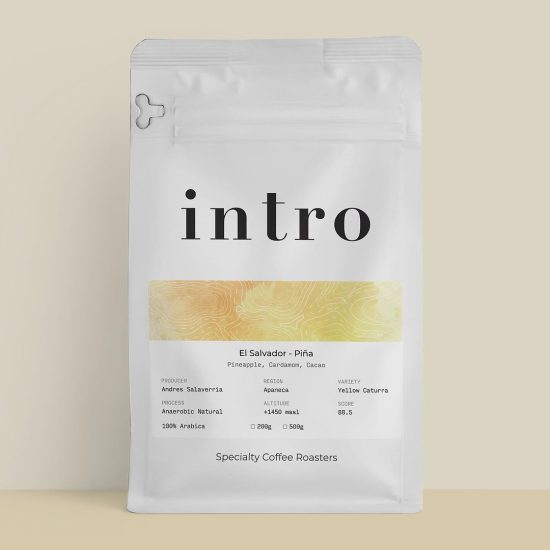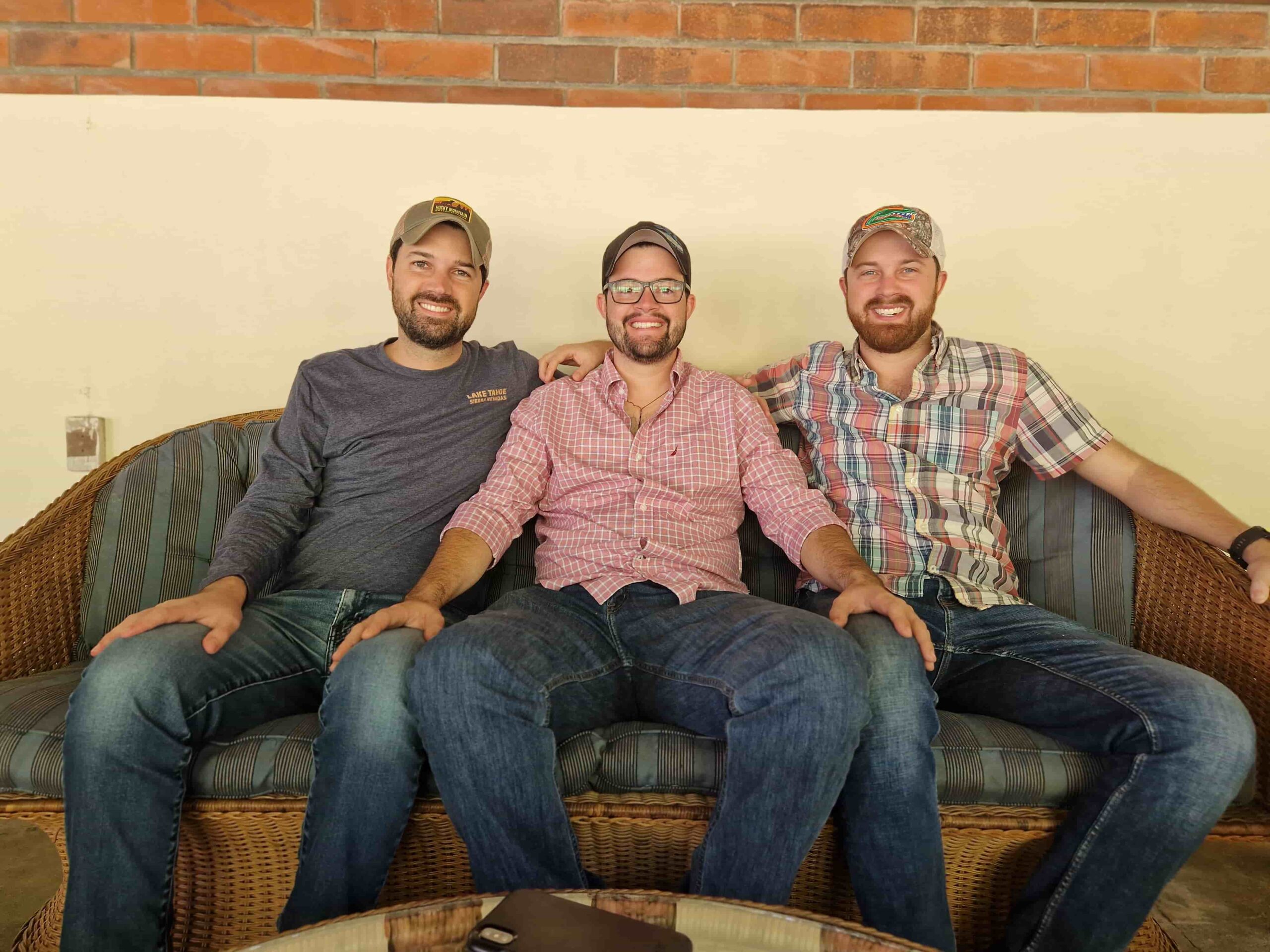
About This Coffee
We are excited to share with you this anaerobic-processed Geisha. Coming from the Villa España farm in Apaneca, El Salvador, this coffee has a complex profile of fruity and floral notes (apricot, tangerine, orange blossom, honey) with high sweetness and a very pleasant aftertaste.
The Terroir
The Mena family is the sixth generation of coffee growers, managing Villa España Farm in the coffee-growing municipality of Concepción de Ataco, El Salvador. The three brothers, Jorge (32), Alfredo (31), and Víctor (29), divide responsibilities – Jorge handles administration, marketing, and logistics; Alfredo oversees production from nurseries to harvesting; and Víctor prepares budgets and prioritizes investments. The farm dates back to the late 1800s when their Spanish ancestor began growing coffee, originally with a steam-powered mill. Over time, the family has made sustainable improvements, including a variety garden for testing new cultivars suitable for the farm’s conditions up to 1450 meters altitude. With its picturesque location, Villa España has become the family’s flagship farm for producing specialty coffees.
El Salvador - Villa España (Geisha)
Price range: 240 DH through 1080 DH
Price range: 240 DH through 1080 DH
| Method | Dose | Time | Ratio | Temp |
|---|---|---|---|---|
| V60 / Origami | 18g | 3:30 | 1:16 | 92°c |
| French Press | 20g | 4:30 | 1:12 | 92°c |

About This Coffee
We are excited to share with you this anaerobic-processed Geisha. Coming from the Villa España farm in Apaneca, El Salvador, this coffee has a complex profile of fruity and floral notes (apricot, tangerine, orange blossom, honey) with high sweetness and a very pleasant aftertaste.
The Terroir
The Mena family is the sixth generation of coffee growers, managing Villa España Farm in the coffee-growing municipality of Concepción de Ataco, El Salvador. The three brothers, Jorge (32), Alfredo (31), and Víctor (29), divide responsibilities – Jorge handles administration, marketing, and logistics; Alfredo oversees production from nurseries to harvesting; and Víctor prepares budgets and prioritizes investments. The farm dates back to the late 1800s when their Spanish ancestor began growing coffee, originally with a steam-powered mill. Over time, the family has made sustainable improvements, including a variety garden for testing new cultivars suitable for the farm’s conditions up to 1450 meters altitude. With its picturesque location, Villa España has become the family’s flagship farm for producing specialty coffees.

